TOP SCAMS AND HOW TO PROTECT YOURSELF FROM THEM

Jasmine Birtles



Jasmine Birtles


Jasmine Birtles

If you have answered ‘no’ it’s likely that you are either staggeringly lucky or unaware of having had some cash taken from you by a clever fraudster.
Scams are happening every minute and they are perpetrated by experienced and professional fraudsters whose job it is to steal money from other people.
These frauds and scams are happening online and offline and there are many, many ways that criminals can get at your cash now.
But are we helpless to fight it?
This book will give you the tools to protect yourself against scammers at home and abroad, and even find out how to get your own back.
There are many different scams around, and new ones being thought up pretty regularly, but they tend to fall into a few basic categories.
• ID Theft – somebody takes on your identity.
• Financial and investment scams – you are exploited through finance or investment schemes which are fraudulent.
• Impersonation scams – somebody pretends to be someone they are not in order to scam you.

• Authority scams – where either someone comes to your door pretending to be a policeman who needs to check that you haven’t been burgled…then burgles your home as he ‘looks around’, or you get a ‘phishing’ email. apparently from HMRC or another Government department telling you that you are owed a tax rebate or that you have to pay.
• Fakes – a medley of possible fraud based on faking an item for a consumer.
• Work scams. This could be one of the various awful homeworking scams or, more recently, emails that say you’ve been selected to do a great job and all you need is a bank account where some money will be ‘resting’.
Note that most of these can happen online, in fact oftentimes it’s easier and takes less effort for fraudsters to trick you on the web!
Online and offline scams now happen more regularly than celebrities going into rehab so you should be on your guard more than ever.
Oh, and get your credit checked out if you have any concern that someone is using your ID for fraudulent purposes. In fact, it’s probably worth joining up one of those credit check services where, for a monthly fee, you can check your credit file any time, day or night.
We used to think that was just over-the-top but now we’re all going to have to do it sooner or later to keep an eye on our accounts and stop this international criminal activity getting totally out of hand.

To make things easier for you we’ve broken up this guide into 8 sections dealing with all areas of fraud and scam you might come across. Handy if you’re looking to protect yourself from a particular type of con.
Our sections are:

You know what they say, if it’s too good to be true
Yet, thousands of people still get lured into easy money-making schemes through offers to start your own business from home or work from home.
According the Action Fraud: “The scheme organiser will make you pay an advance fee, avoid paying you for the work you’ve done, make you buy worthless products or make you sign up others to the scheme before you’re paid.”
These scams exploit you as a worker, and make you think everything is worth your while, but it simply isn’t.
Don’t bother with envelope-stuffing schemes. We haven’t found any that were worth it.
Don’t go for anything that asks for payment upfront to join or get an information pack.
Check with this site and ask on the comments on articles like this one if you’re not sure if something is legitimate or not.
Read our article on home-working scams here to find out the main types you could be conned into doing

Then check on our Make Money section for real ideas for making money from home.
Here’s Money-making ideas for the over 60’s and Online surveys Those are just for starters.
There are real ways you can make money from home but be very careful if it’s something we haven’t recommended. Ask us first if you’re in any doubt!

This scam was discovered by Financial Fraud Action UK. Fraudsters are sending spoof emails to workers impersonating senior members of the company, such as the finance director or chief executive. They then ask the worker to transfer them money, usually saying it’s an urgent circumstance such as it’s needed to secure a new contract. However, of course, the payment is made to the fraudster’s account and they then withdraw the money straight away. What’s worrying is how convincing this scam can be. Fraudsters use software to manipulate the characteristics of an email so it looks genuine – it includes the correct sender’s address and looks like an email a worker really might get from a senior member of staff Sometimes fraudsters are even able to hack the actual are available

Thankfully Finance Fraud Action UK has some top advice on avoiding this scam:
Always check any unusual payment requests directly, ideally in person or by telephone, to confirm the instruction is genuine. Do not use contact details from the email.
Establish a documented internal process for requesting and authorising all payments and be suspicious of any request to make a payment outside of the company’s standard process.
Be cautious about any unexpected emails which request urgent bank transfers, even if the message appears to have originated from someone from your own organisation.
Ensure email passwords are robust.
Consider whether the email contains unusual language or is written in different style to other emails from the sender.
Katy Worobec, Director of Financial Fraud Action UK, says:
“Fraudsters will do all they can to make these scam emails look genuine, so it’s important for businesses to be alert. While an urgent request from the boss might naturally prompt a swift response, it should in fact be a warning sign of a potential scam. That’s why it’s vital that finance teams carefully check any unusual demands for payment through an alternative method, such as over the phone or face to face, before making the payment.”
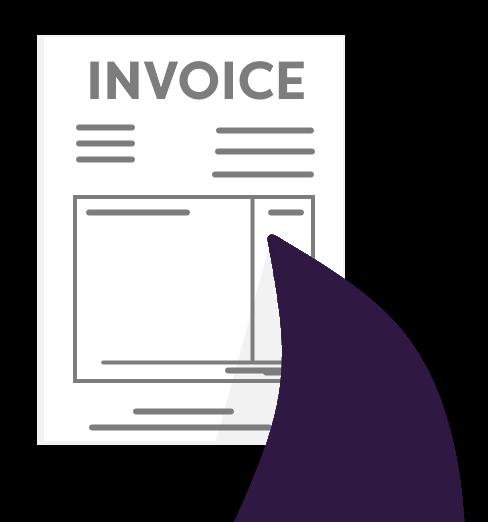
The scammers will send an invoice pretending to be from a legitimate company with a normal word processing or spreadsheet document attached.
However, to open it you will have to enable a macro (a set of preprogrammed instructions for a computer), and this macro will download malicious software onto your computer.
This software will then monitor your internet usage and have access to all your banking details – in fact it can infect the whole of your business network.
Once it has your information it will send it back to the nasty criminals and they’ll help themselves to your hard-earned cash. Unfortunately, fraudsters are getting ever more sophisticated with their schemes, making spotting potential scams considerably harder.
Scammers will try to use the same email address as a legitimate supplier uses – in some cases fraudsters even pretend to be a manager or colleague in the same business to convince people to open the invoice.
Also, if you’re a freelancer and used to working through a lot of invoices, why not check out our top 5 Money Saving Hacks for Freelancers.

Thankfully Financial Fraud Action UK have offered the following tips –
Be on the lookout for unexpected invoices or unusual payment requests, especially those arriving in different file formats to normal. Avoid enabling any macros on an untrusted document. (Macros in themselves are not dangerous and do serve a legitimate purpose – but they can be used to hide malware).
If you’re suspicious don’t reply to the email but instead call your supplier on the number that you have on file to check the authenticity of the invoice.
Ensure you have the latest anti-virus and security updates installed on your computer and consider using high-level macro security settings in software applications.
Ensure strong firewalls are in place to help detect malware and prevent data leaving the network without permission. This can be achieved through investing in IT and seeking professional advice. Consider using a separate computer dedicated to making online payments to minimise security risks.
Katy Worobec, Director of Financial Fraud Action UK, says:
“Never enable a macro if you’re at all unsure about the authenticity of an invoice and instead call the sender on the number you have on file. If you think your computer system might be infected then contact your bank immediately.”
eBay was once fined £30 million by a French court for allowing the sale of fake goods. eBay strive hard to eliminate fakes from the website and employ 2,000 people specifically to deal with this issue but, with more than 10 million goods for sale, it’s hard to police effectively.
If it’s designer goods that you are after then we’re afraid there is always a risk that you are purchasing a fake. However, there are certain steps you can take to make sure the article you are bidding for is the genuine thing.

If you’re selling on eBay on the other hand, we can also help you with that, here are 20 handy tips for making more money on eBay.
Use your common sense. Is it likely that someone is selling a genuine designer item with a starting price of 99p and no reserve? Check the seller’s other items – are they selling multiple articles from the same designer? Similarly, be very wary of any items which come from Hong Kong or China or other far-flung places. Have you ever been to Hong Kong? There are fake designer bags and wallets on every street corner.
If you are absolutely set on a particular bag then go to a department store which sells the genuine item and examine it very, very carefully taking careful note of the position of the logos, rivets and stitching. Remember that a seller can post a picture of the real bag on eBay and then sell you a fake so, if you buy, collect in person and don’t part with the cash until you are certain you are in possession of the authentic item. And take no notice if the seller is including the care card or the control card – these too can be easily faked.
If you can’t collect the item yourself then please do pay with PayPal as it offers buyer protection. In other words, if the bag or item turns out to be fake, you can get your money back.
Have a good look at your seller’s feedback and check out their reputation for customer satisfaction. You can learn an enormous amount from taking a look at everything they have sold. Lots of Chanel bags at a cheap price should ring alarm bells. Ask the seller questions about the item and ask for additional photographs, a genuine seller will readily provide additional information. Real designer handbags do not come with plastic wrapped handles – this can be an absolute give away in the photograph.
Remember, there is a huge industry in fake perfume and cosmetics as well. This is a potentially dangerous area as these fakes will have untested ingredients and could be damaging to your skin. Sometimes Amazon is a better way to go, it’s less likely you’ll find fakes here compared to eBay.
There are some genuine designer items in the eBay marketplace, you just need to look for them carefully. However, we are not going to point you in the direction of any ourselves as we simply can’t guarantee their authenticity.
If you do want to buy a designer handbag we would go for a make like Mulberry or Anya Hindmarch simply because they are not counterfeited so much as the Guccis and Chloes. Do be prepared to pay a lot of money, a current ‘it’ bag in good condition will probably sell for up to two thirds of its retail price.

Note: Fraudsters are particularly active over big selling periods like Black Friday, Christmas and New Year with the aim of catching people off guard. Things you shouldn’t do when shopping online (particularly at these times):
1. Not checking websites are legitimate before purchase: Technology is sophisticated and it’s not uncommon for criminals to launch a perfectly legitimate looking site with all the expected features – often including customer reviews. However, a legitimate ecommerce site should be equipped with a SiteLock Trust Seal – the padlock to the left of the URL bar. 54% don’t look for The Seal before making a purchase, meaning they could be directly inputting their bank card’s details into a fake shopping site.
2. Purchasing from sites you’ve never heard of: It might seem crazy but 19% of us will consider doing this. The result for many can be ordering counterfeit goods inadvertently. According to the research, 23% ordered DVD/Blu-ray, only to realise when it was fake on arrival.
3. Purchasing items which appear to be on too good of an offer: Don’t get caught up in the sales, especially with designer goods and highvalue electronics such as smartphones, speakers and headphones. This contributes to the 39% of people who have placed orders which never arrived and lost cash. If you’re being offered a radically different price to the figure on the brand’s official site, be very wary.
4. Not changing passwords online: This is good internet housekeeping, but many of us neglect this – even after security breach. Shockingly, 50% of scam victims don’t actually change their passwords. This leaves people exceptionally open to further cyber attacks and also identity theft.
5. Assuming you’re not a target of fraud: 45% of 18-24 have been targeted by online scams as opposed to just 26% of over 55s. Of these people, 31% wrongly assume online fraudsters are just targeting senior citizens, showing how at risk the younger generations are – especially when many assume they have nothing to worry about.
6. Disregarding small charges on your bank statements and phone bills: Increasingly, fraudsters take smaller amounts of money from victims, which may add up to larger, more significant amounts without you being entirely aware. A fifth (19%) noticed some suspicious charges on their mobile bill or bank statements as a result of this. Where this happens, contact your bank or mobile provider immediately to find out the source.
7. Ignoring your bank when they tell you something’s afoot: A whopping 41% were warned by their bank that something wasn’t right with their account but didn’t address the point. Unfortunately, these people were then targeted by scammers. It can seem like a hassle, but banking technology is designed to keep our finances safe
8. Letting the site keep your credit card details: admittedly this does make it easier to shop if you go to this site regularly, but if the site has your credit card details stored then if it gets hacked (and even the big sites do sometimes) then the hackers will have access to all the credit card details that are stored there.
Basically, the opposite of all the don’ts above. Study your bank statement every month – this is something you should really be doing anyway. What’s the point in working hard all week if you’re not going to protect what you’ve earned?
Don’t trust obscure sites.
Use applications like Web Of Trust (WoT) which you can install on google chrome to tell you which sites are safe and reliable and which are not. If you’re in doubt about a new site, put their name and ‘review’ into your search bar and see what other shoppers say about them. Check them on TrustPilot and forums.
However, if you want to sell your stuff online, we also have some great advice and a step-by-step guide on our website.
We can all be lured in with the promise of a freebie. But be careful, because not all of these so-called freebies are completely free. Companies can hook you with the freebie and before you know it, you’ve got money coming out of your account every month and you are signed up to a contract for a year.
Although it may not be fully categorised as a “scam”, often a free trial such as that with a streaming service requires you to enter your debit/credit card or bank details and when the trial is over they will automatically start to charge you. This is even the case with household brands such as Amazon.
Responsible companies should make it clear on their site that you will charged after a certain period if you fail to cancel. But you might find this information is in the terms and conditions and not clearly displayed
PlayStation Plus membership is especially aggravating for this. If you forget to cancel your membership you’re charged for the whole next year and because the system first takes fund from your card and deposits them in your PlayStation wallet during the transaction, if you request a refund all that PlayStation will do is return your funds to your “wallet” meaning you will still have to spend that money on the PlayStation store.
The best thing you can do is to sign up to our freebies newsletter and get hundreds of great freebies to your inbox regularly! We check every freebie, so you know it’s always legitimate!
Also be wary that when a company asks for your credit card details with a free trial, then you should look out for what happens when your trial ends, and set a reminder date in your calendar to cancel your membership before you get charged. Also, most of the time you can cancel your membership immediately after signing up, and will keep all your membership benefits until your trial/membership period expires.
Not all freebies require credit card details and there are plenty of genuine freebies around out there, you just have to search for them – or sign up to our newsletter!
When you arrive at a hotel and check in you are usually required to leave your credit card for charges to your room.
The scam starts when you get a call from someone who appears to be a receptionist at the front desk. They’ll call you in your room and make up a plausible story that will go something like: “Our database has crashed and we need you to help us to reconfirm your credit card details.”
In quite a few cases the con artists have called up the hotel guests in the early hours of the morning to catch them off their guard and a bit confused – it’s more likely guests will hand over their details instead of going down to the front desk to sort any issues out.

People who have been victim to this type of hotel scam have said that it is very believable as the con artist sounds so professional. They’re very apologetic and polite, acting sorry for the inconveniences caused.
Most of the scam artists have managed to call up hotel guests because they’ve been able to break into the hotel’s phone system and contact guests directly.
Likewise, when in a hotel on holiday, make sure you always keep your ID/passport safe!
Some basic rules to follow which will protect you against falling victim to a hotel scam are:
Always deal with your financial business face to face at the front desk and don’t give out any of your personal or financial information over the phone. If you do get a suspicious call to your room, inform a member of staff at the hotel as it’s quite likely other guests at the hotel got the same call. Remember that a hotel would never call you in the middle of the night and would sort out any problems with your credit card in person the following day if it was needed.
Book with reliable hotel agencies and remember to get travel insurance. Hint – you won’t have this problem if you use Airbnb instead, which can be cheaper!

Even before you’ve gone on holiday you can fall prey to a holiday scam – the actual booking site. A report by the City of London Police’s National Fraud Intelligence Bureau (NFIB) estimated that British holidaymakers were scammed out of £7m by fraudsters in 2015, with £2.2m of this being lost to fake online sites and reviews.
What they do is set up copy-cat websites offering all-inclusive services including flights, hotels, transfers and travel insurance. These fraudulent sites look normal and they’re pretty easy to set up. As they use a credible domain name it’s even easier for them to sucker us in.
There’s also the issue of trusted established websites like TripAdvisor which can also be plagued by bogus reviews recommending fake holiday companies or websites.
Shop around – if one particular website, that isn’t one of the big travel companies, is offering a deal much lower than the rest then think twice. If it looks too good to be true, it probably is!
Unless you have 100% verified who you are dealing with, do not pay for your holiday by bank transfer, Western Union or cash. Use your credit or debit card that at least offers a level of consumer protection.
Only use websites that have a verified identity. If you are asked to hand over personal details or credit card numbers don’t do it unless you are in a website protected by SSL (look for a green browser bar or the padlock to left of the web address). Quickly check the details of the domain name of the website at who.is – when was it registered? If it was only set up in the last year be suspicious. Also, if their details are hidden be very suspicious!
However, sometimes you can find incredible deals which are legitimate, you just need to know where to look. We’ve collected all the best travel deal, hotel and flight websites in one place – you won’t find cheaper prices anywhere else, so take a look!

The internet scammers have come up with a new internet scam – based on a very old one - using your email inbox.
Matthew Wright, from Channel 5’s ‘The Wright Stuff’ first told us about this as he got an email like this, apparently from a friend. He received an email, apparently from one of his friends, with a message along the lines of: ‘I’m in a Kenyan jail, please send me some money as soon as you can!’
In this case, as this friend happened to be a journalist, it wasn’t a completely unbelievable situation, and Matthew was concerned. However, as he was busy at the time he didn’t deal with it immediately. Then, the next day he received a very similar message from another of his contacts. It turns out they were in an African jail too and also needed money wired to them urgently! This time, it was a very unlikely scenario for this particular person to be in and it became clear that it was a scam. The fraudsters are able to hack into your email list and send messages posing as you to all those on your contacts list. “The first email I got looked real” said Matthew. “It was only when the second one that I realised it had to be fake.”
Here are a few steps to take to prevent this happening to you: Use a good web browser and a firewall –this should protect you against fraud, and alert you to websites without security certificates, or those which might not be legitimate.
Check first with your friend if you get an urgent message. Text or phone them or even email them from a separate account asking if their message was genuine. For more information about scams – see our Scamwatch article
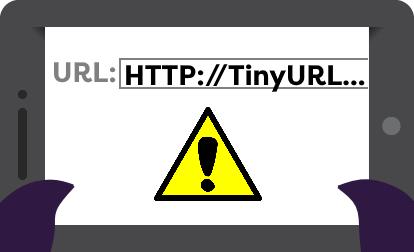
Thanks to Twitter we’re all used to seeing shorter links, created through sites such as Bitly.
Shorter links are good because they’re easier on the eye and allow Tweets to look short and concise.
However, shorter links do make it much harder, if not impossible, to tell what site you’ll be sent to.
Criminals will take advantage of this to send people to malicious sites with viruses that will infect your computer.
To stay safe, make sure you have antivirus software and don’t click on a short link unless you’re sure of the person or company sharing it. Also read our article on spotting online scams.
We’ve heard of yet another nasty fraud being perpetrated on Facebook. If you’re on it, be very careful of this one – it’s extremely sneaky.
As you may know, sometimes people who are on Facebook come off it and then go back on so it’s quite possible that you will get a ‘friend’ request from someone you thought was already on your list (which could be 100s long of course!).

In fact, these ‘friend’ requests can be bogus. Some scammers copy Facebook profiles. They copy the timeline, the friends, the family, the photos and everything. So, the whole profile looks entirely legitimate.
After a couple of weeks you’ll get a panicked message from this Facebook contact – the sort we’re now used to getting in emails – saying that they were away on holiday but had been mugged and needed to be sent £250 asap.
Well, given that this message will mention members of your family it can be very convincing.
So, if you have a Facebook profile and you get a ‘friend’ request, just doublecheck. Ring them on the phone or email them direct. Don’t just ask them on Facebook if they’re real, because of course, whoever they are, they will say ‘yes’!
Small business owners and the self-employed are being sent fake “phishing” emails to try to trick them into handing over their bank or credit card details. The way they hook you in is to pretend that you’re owed a tax rebate. The Revenue say it’s “the most sophisticated and prolific scam” it has dealt with. Beware!
These tend to go out in the month or so leading up to a tax deadline, like the one for self-assessment forms to be sent in. This is a time when many taxpayers will be due for a rebate so a lot of people could be taken in by these nasty emails.
In one of these frauds, the scammers ask people to call a phone line to leave their details. If you do that you’ll hear a ringing tone, but you will be charged up to £6 a minute while you hold for a reply!
HMRC has so far had fake websites taken down in Austria, Mexico, the US, Thailand and Japan as it attempts to stamp out the fraud. But it’s still going on so watch out and tell your friends.
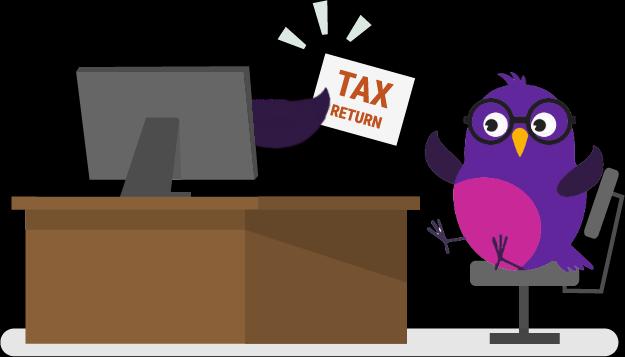
Be vigilant and be aware of what you are or are not owed. The government does not like handing out money, so in all likelihood if it seems as if someone want to take work off you hands or give you money back it is likely fraud. Know your tax code and how much you are paying, as well as whether you have had a tax rebate before or are eligible for one in the future.
Fraudsters alleging to be from HMRC send text messages to unsuspecting members of the public. In these messages they will make false claims, such as suggesting they are due a tax rebate.
Messages will usually include links to websites which harvest personal information or spread malware. This can in turn lead to identity fraud and the theft of people’s personal savings.

Reports of this type of fraud have quickly increased in volume over the last few years. People message scams than other forms legitimate, with many texts displaying .
HMRC will never contact customers who are due a tax refund by text message or by email.
This makes it very simple to avoid these types of scam. If you get a text or email, it’s from a fraudster.
‘Boiler Room’ scams are a nasty and expensive type of fraud that, in some cases, has cleaned people out of their life savings on the promise of big earnings on share investments. Even seasoned investors have been conned by this scam – in fact it’s usually seasoned investors who are directly targeted by these people.
What happens is that some stranger calls you up and tells you about this amazing stock or fund or some such product which you just have to invest in. It’s going to go stratospheric any day now, according to your persuasivesounding caller, so you’ve got to put money in asap or you’ll miss out on this incredible investment opportunity.
These people are often based thousands of miles away, somewhere where the rules are pretty lax but, they often have pukka-sounding names like ‘Barclays Investment Growth’ or ‘Lloyds Fund Management Research’ and will have a London phone number (something you can buy easily) a City address (which is bogus) and often a posh voice on the phone. It can all look and sound totally plausible whereas in fact it’s a lying, scumbag fraud (and you can quote me on that!).
A good way of learning about how they work is to watch the film of the same name, ‘Boiler Room‘, which has Ben Affleck, Casey Affleck and Vin Diesel in it. It’s worth a look to find out how these people think and what harm they can do. It’s good entertainment too.
Use your common sense, don’t be intimidated or impressed by posh accents and/or impressive and official sounding corporate names. Remember how easy it is to fake an identity and occupation and remember how much money is at stake. Most things in life that are too good to be true, really are too good to be true. Money doesn’t just drop out of the sky and with that in mind you should be able to tell the difference between fraudsters and legitimate opportunities.
The fraudsters – often from a company with a similar name to an existing loan company (clever) – are sending out letters claiming the recipient has missed a repayment deadline and they now owe the original debt plus more money. Naturally, if you’re already a bit jittery about your loan repayments, a letter like this can make you panic and try to pay it before you get worse fines. It’s a mean and manipulative fraud – as most frauds are – so do let friends and family know about it, particularly if they are borrowing right now.
Action Fraud has had thousands of these cases over the years and takes them very seriously!
On the topic of loans, it might be a good idea to familiarise yourself with the differences between loans and credit cards, so you’re aware of the avenues fraudsters can attack from.
There are some simple rules you can all follow to help protect yourself:
• Check your original paperwork contact the company you took the loan from to check repayment dates
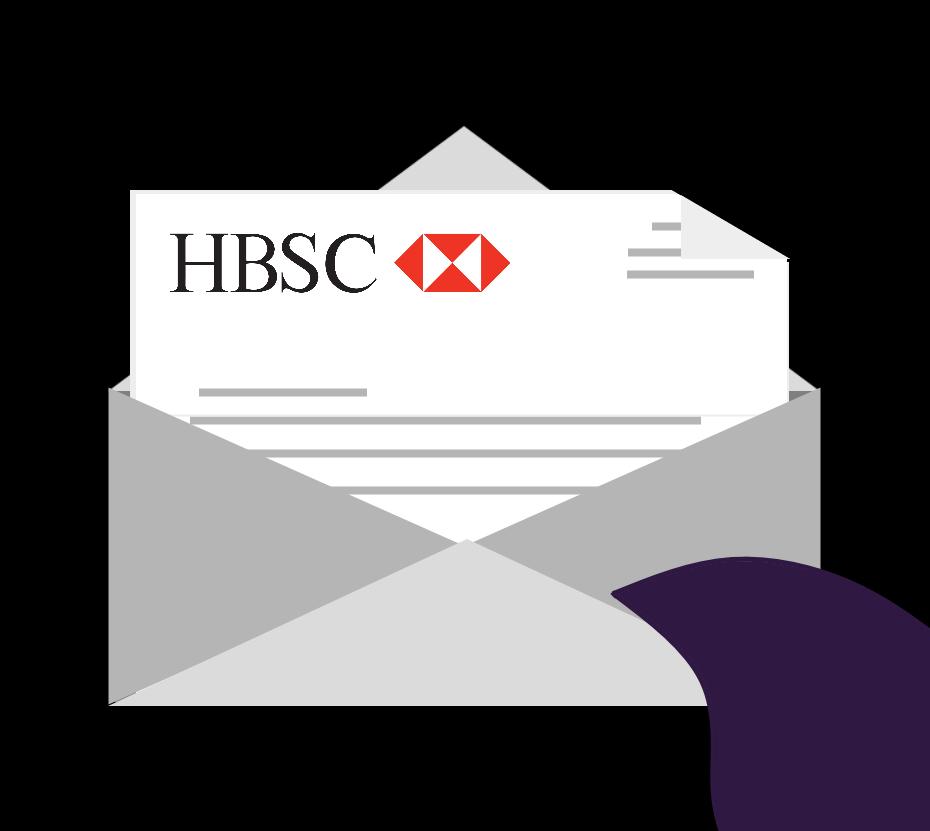
• Ask questions – If someone legitimate they won’t pressurise you or be elusive.
• Don’t stay silent. If you’ve been targeted by a fraudster and lost money, contact Action Fraud call 0300 123 204.
Fraudsters offering investments in binary options, contracts for difference (CFDs), forex and cryptocurrencies (such as Bitcoin), often promote themselves online and via social media channels, such as Facebook, Instagram and Twitter. They typically promise high returns and use images of luxury items, like expensive watches and cars, to entice people to invest in their scams. After someone has invested, they distort prices on their website, tie people in with extreme pay-out clauses and even close customer accounts, refusing to pay back their money.

This rise in people being targeted online means that the profile of investment scam victims is changing. While historically over 55s have been most at risk to investment fraud, the FCA’s latest study conducted as part of its ScamSmart campaign, found those aged under 25 were six times (13%) more likely to trust an investment offer they received via social media, compared with over 55s (2%). Action Fraud figures reinforce this trend, showing that under 50s are significantly more likely to fall victim to a binary options scam versus other types of investment fraud (34% v 21%).
More than one in five (23%) respondents said that online customer testimonies and reviews increase their trust in an investment company. Yet, scammers are known to create highly professional looking online investment platforms that feature fake customer reviews, logos, and statements, to lure in prospective investors. A further one in ten (11%) said they wouldn’t conduct any of the listed checks at all, such as checking whether the firm was regulated by the FCA or registered with Companies House, before parting with their money.
The FCA’s ScamSmart campaign encourages those considering investing to check its dedicated website. The site features an online tool, the Warning List, which allows users to find out more about the risks associated with an investment and view a list of firms the FCA knows are operating without its authorisation. For the first time, the FCA has seen more users checking the Warning List after being approached with an investment offer online rather than over the phone.
Binary options investments allow consumers to make bets on the expected value or price of a stock, commodity, currency or index. On 3 January 2018, binary options became a regulated investment product, meaning that all firms trading in binary options will need to be authorised by the FCA. Since then, the FCA has published a list of 94 firms without FCA authorisation that it understands to be offering binary options trading to UK consumers. Take a look at the list to see which firms are regulated. If the site you are trying to use is not on that list, come out of it immediately

Any time we see an ad on Gumtree or Craigslist or similar which says we’re to send money by wire transfer, by Western Union or similar we’re 99% sure it’s a con.
Western Union is a legitimate and useful way of sending money to friends or family in another country but because it’s hard to trace the cash, it’s also used by a lot of fraudsters around the world. Now Western Union is warning consumers to be vigilant when shopping online because this is where scammers are poised to steal your hard-earned cash
Common goods involved in scams are:
• Event tickets
• Motor vehicles
• Electronic goods
Western Union says you should never send a money transfer to someone you have not met in person

Be particularly careful with sites like eBay, eBid and the other auction sites. In auction site scams buyers are told the seller only accepts money transfers for payment. The “seller” tells the buyer to put the transaction in a fictitious name, falsely convincing the victim this protects their money until the goods or services are received. The “seller” retrieves the funds and the goods never arrive.
Just as you wouldn’t send cash through the mail to a complete stranger, don’t use a money transfer service to pay for a product you haven’t seen, from an individual you have not met. For more information on how to protect yourself from scams using Western Union go to their page here.
Nasty fraudsters have been cold calling pretending to be staff from the Financial Ombudsman Service wanting to discuss insurance claims.

People have also been getting fraudulent emails claiming to be from staff at the Financial Ombudsman Service.
In both circumstances, fraudsters are falsely using the name of the service to persuade people to reveal details about their personal and financial circumstances.
The Financial Ombudsman have said: “We take issues like this very seriously and it is concerning and unfortunate that fraudsters are falsely using our name to try to deceive people. The ombudsman does not “coldcall” people or email them out of the blue, particularly to ask for personal information.
“We would only get in touch if someone has already contacted us, so they should be expecting to hear from us, and then only to discuss the query they have asked us to look into.
“It is important to be vigilant so if you receive an unexpected call or email from someone who says they work at the ombudsman service – but it seems suspicious and you want to check it out –you can get in touch with us. We’d recommend you hang up and either use a different phone, or at least wait ten minutes, and then call us directly on 0800 023 4567.”
To help protect yourself generally from scam communications, you should:
• Never reveal any personal details – such as your address, phone number etc. – unless you’re absolutely sure that the person you’re dealing with really is who they say they are. Some firms will ask for extracts of personal information for security procedures but this is normally only where you have a pre-existing relationship with them. If you aren’t expecting a call or don’t recognize the business calling, be vigilant;
• Never give out any of your banking or credit card details unless you know for certain that the request is genuine; and
• Never give anyone your security information, such as your internet/telephone banking password or log-on details (no genuine banking firm ever asks you to provide this information)
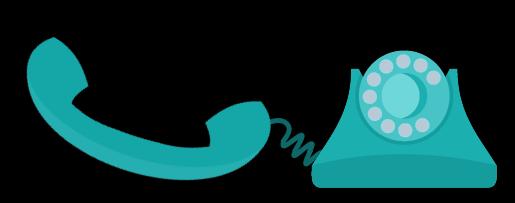
If you get a text that seems to be from your bank, telling you there’s been fraud on your account and asking for your personal details. Delete it immediately.
Criminals are using spoof text messages which appear to be sent from your bank to try to steal personal or financial information according to Financial Fraud Action UK (FFA UK).
The scam text messages claim that there’s been fraud on your account or that the account details need to be updated.
The texts try and get you to call a number or visit a website, often claiming the matter is urgent. But the telephone number or website is actually controlled by the fraudster, enabling them to steal security details which can be used to access your bank account and steal money.
To make the texts seem authentic, fraudsters use specialist software which alters the sender ID on a message so that it appears with the name of a bank as the sender. This can mean that the text becomes included within an existing text message thread on your phone.
A second thing they do is say in the texts that you will soon receive a call from your bank’s fraud department. However, it’s actually the fraudster that then calls you and attempts to trick you into revealing you full security details.
Not only that but fraudsters are also sending scam texts which appear to be from a landline number, asking you simply to call your bank. This is in the hope that you will phone the number from which the text was sent, which is controlled by the fraudster, rather than the bank’s regular customer service telephone number.
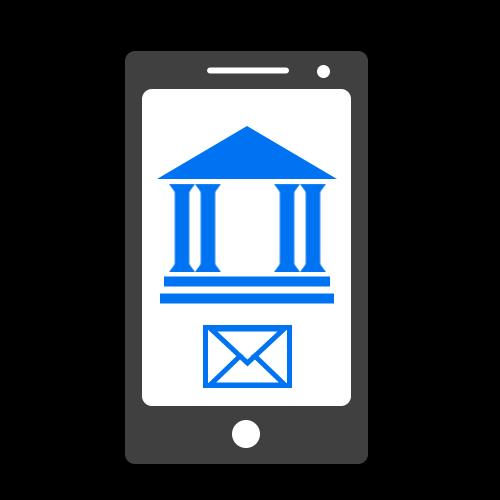
Your bank will never act like this! They will never ask you to give account information away. So simply put, don’t do it even if the communication seems legitimate.
If they are persistent and you feel like the matter may truly be of urgency and not fraud related, go into your local branch to ease your mind or ring them direct.
A salesperson from some small phone company calls up extolling the virtues of their phone service. Even if you don’t express interest they then contact BT and tell them that you’re leaving and switching to their service. You don’t know anything about it until a letter comes from BT expressing sorrow that you’re leaving. Apparently, they transfer the service, then when people try to cancel the contract the dodgy company charges them a re-connection fee of over a hundred pounds.
For more telephone scams, check out our list of the top 10 and how to avoid them.
The action you can take depends on the type of mis-selling you have experienced and when it happened It is also important to tell Ofcom of your experience as such reports help Ofcom tackle slamming/mis-selling. Although they cannot investigate individual cases your complaints can lead them to launch investigations and ultimately to take action against companies found to be mis-selling. You can contact Ofcom online or by calling 020 7981 3040 between 9am and 5pm, Monday to Friday.
As part of the Distance Selling Regulations or Consumer Contracts Regulations as they're now known, you've a right to cancel an order made at a distance. For example, an order made online or over the phone.
You normally have 14 days from the day your service starts, to change your mind and leave your contract without any charges for early cancellation. Your existing supplier should send you a letter to notify you of any pending transfer. This lets you cancel without charge up to shortly before the transfer is due to take place.
If your provider is unable to resolve your complaint, ask for a deadlock letter. This enables you to take your complaint to an Alternative Dispute Resolution (ADR) scheme. ADRs act as an independent middleman and will examine the case from both sides and reach a decision they think fair. If eight weeks have passed since you first formally complained you can contact the ADR directly. There are two ADR schemes - Ombudsman Services: Communications, and the Communications and Internet Services Adjudication Scheme (CISAS) links??. All service providers must belong to one of the schemes. Your provider will tell you which scheme it is a member of.

A phone call scam, involving alleged ‘Clairvoyant’ services is making scammers money without the people knowing that they are being charged. Confused and oblivious householders receive mysterious messages and cold calls from apparent Clairvoyants and Psychics selling them their ‘services’ whilst being charged a premium rate without realising it.
Scams like these are often hard to spot as the callers are very convincing and have been well-trained.
The way they work is that they phone you up and tell you that you’re in some kind of trouble or you have something like a curse and you need to make a payment so they can get rid of it for you Sounds crazy but there are a lot of gullible and frightened people around who will buy into this.
One of their other main scams is telling you this week’s “winning” lottery numbers, which sounds very enticing to a lot of people and therefore many are being swindled without even realising.
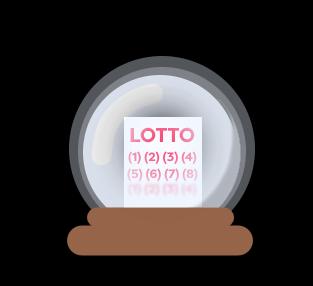
Another thing which makes this scam hard to track is that the majority of the public fail to check their itemised phone bill each month so don’t know that they have been charged extortionate amounts without permission. This means the authorities don’t know just how many people have suffered financial loss up to now.
Many have lost substantial amounts of money per phone call. One website that offers advice to Clairvoyants on premium-rate telephone charges states that a Clairvoyant or a Psychic can earn up to £66 in just one hour by using expensive phone numbers and using a script to keep people on the line for ages. This shows that someone could earn over £60,000 per annum literally by deceiving the public.
These scams are criminal and if you think you’ve been victimised by something like this (or you know someone else who has), don’t let these ‘Psychics’ affect yours and others’ financial future. Get in contact with Action Fraud online or phone 0300 123 240 and report it.
There have been a string of complaints from consumers receiving cold calls, some of which have been abusive, from pretending to be from the National Accident
Yep, another
Simply put, just hang up. The National Accident Helpline is committed to never making cold calls and has set up its own ‘Stop Nuisance Calls’ campaign to help clamp down on unsolicited calls.

If somebody takes your card to complete a payment in a different room, they have complete power to charge however much they want – although of course it’s unlikely this kind of thing will happen in a reputable restaurant or shop. But if you’re in a dodgy looking establishment, watch out!
Skimming can also refer to the criminal practice of scanning credit cards and stealing the card number. Hackers place card readers in everyday locations and arrange them so users easily mistake them for authentic readers or scan credit cards with handheld devices that be easily concealed Once criminals
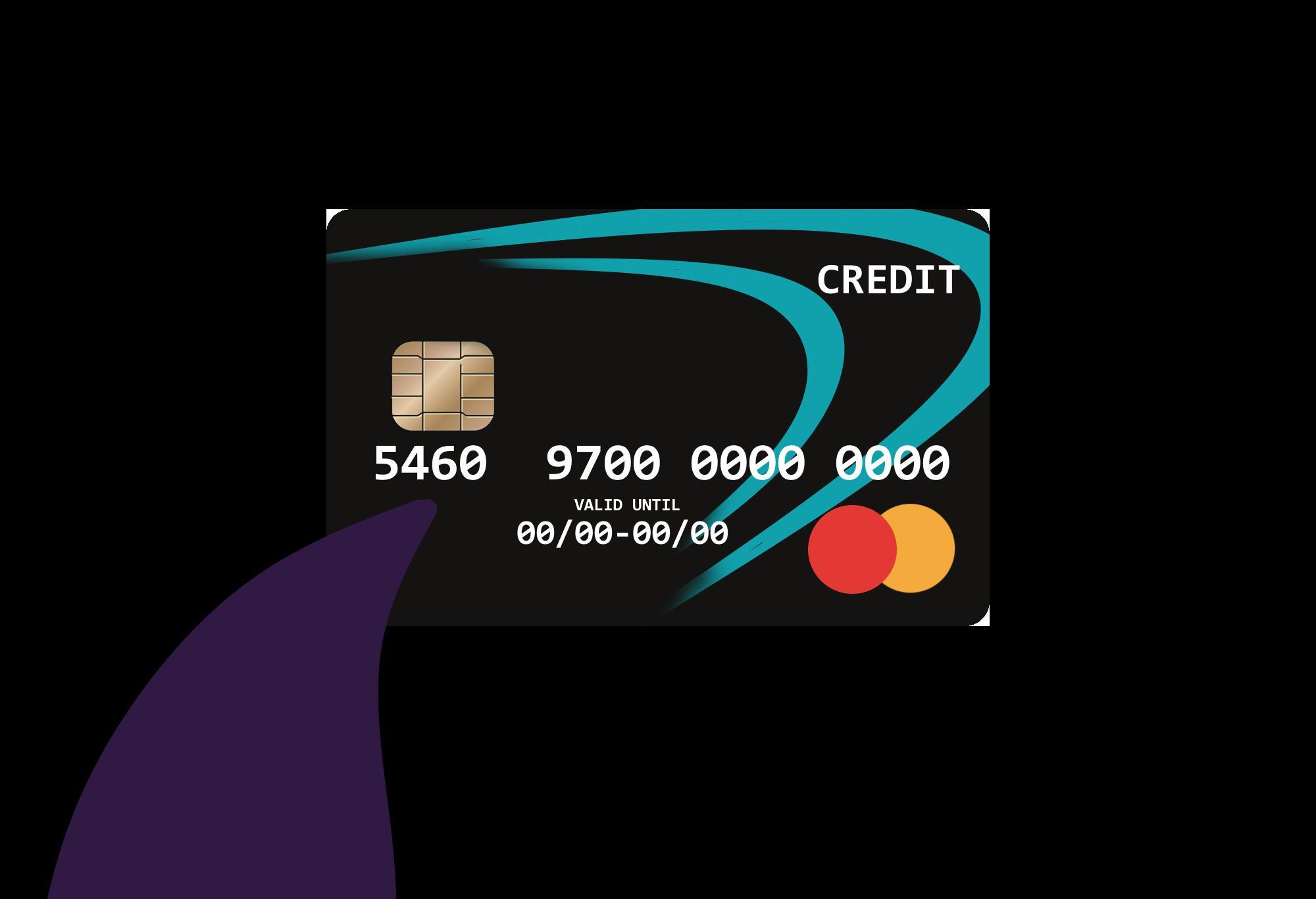
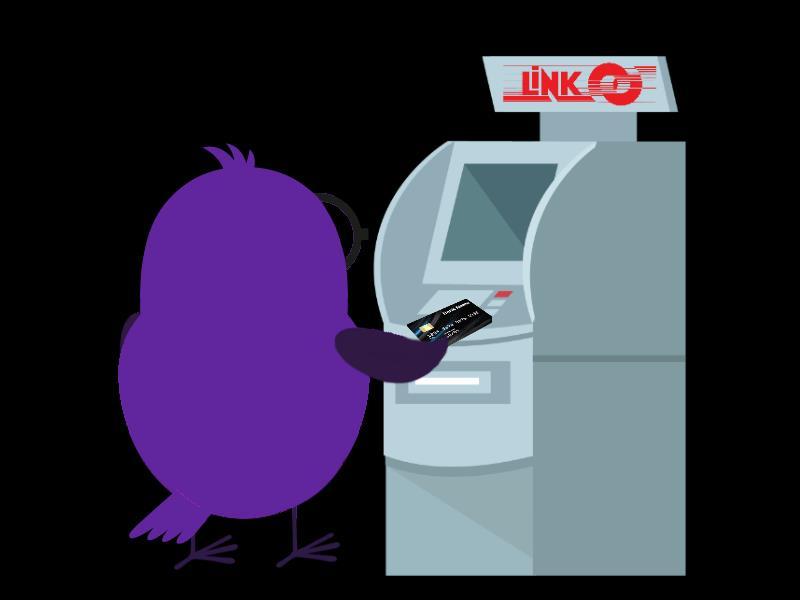
It’s all about being vigilant and seeking to protect yourself. In the case of avoiding someone hacking your card with a fraudulent reader or scanner, just make sure there are no odd boxes attached to ATMs etc. Most venues that take card payments now do this at the table and ask you to key in your pin, where you can see exactly how much you are being charged. If someone wants you to put your pin in and then takes the card and card machine away with them after this, it’s a red flag. It may still be legitimate, but be on your toes. Generally speaking if someone disappears with your card and you don’t feel comfortable about them or the establishment, it’s a sign something is off.
The good thing is that if you use a credit card and make a purchase between £100-£30,000 the money is protected, so to speak, and won’t be taken from your statement at the end of the month if you notify the card issuer of the fraud. With debit cards it’s trickier as the money immediately leaves your bank account. Therefore, it’s always wise to pay with credit rather than debit cards if you can – although many of these will charge you a fee to use them at ATMs so bear that in mind
This is where fraudsters somehow get enough information about you to take over your identity and take out loans, credit cards and even instant cash in your name. Obviously they never pay it back!
They do it in various ways:
Stealing mail – from the sorting office. Many people have been victims of having their mail stolen.
Stealing mail – by a neighbour. Someone we know is still waiting for the police to sort out the £22,000 that was taken out of his account (in three lots –of £5,000, £5,000 and £12,000) by his neighbour yes, neighbour, who had convinced their postman that he was the house owner and got all his bank details by taking his mail.
Garbology – people going through your rubbish.
Firstly, get a shredder and shred all paper documents that you throw away if they have any personal details about you. even worth shredding the ones that just have your name and address on.
So often you don’t even know happening. Someone may double-swipe your bank card and use the details to buy mobile phone credit..
Stolen identities are used by fraudsters to get themselves a wide variety of goods, services and benefits in the victim’s name; to fraudulently open bank accounts and get loans and credit in their name. Nasty!
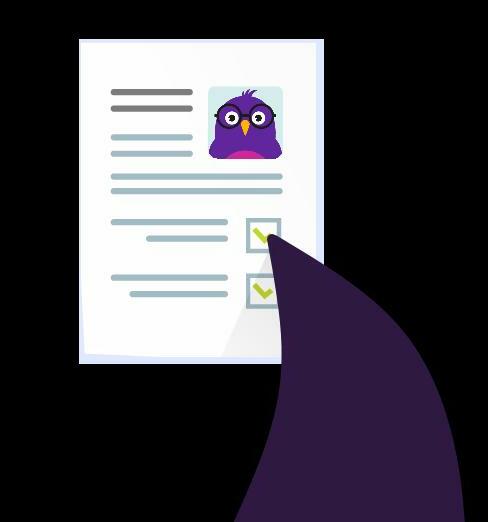
It’s not just about stealing money either. Apparently, criminals also use false or stolen identities to help them commit a wide range of crimes, from evading detection by law enforcement to enabling people-trafficking and terrorism!
Criminals usually try and get important documents such as birth certificates, passports and driving licences. However, they also look for other information which helps steal your identity such as utility bills, online passwords, account numbers and personal identity information which many people still put on social networking sites. Don’t do it! Watch carefully what you put on Facebook, Twitter and LinkedIn.
1. Don’t throw out anything with your name, address or financial details without shredding it first.
2. Check your bank and credit card statements carefully and report anything suspicious to the financial institution concerned.
3. If you’re expecting a statement and it doesn’t arrive, tell your bank or credit card company.
4. Get regular copies of your credit report from a credit reference agency, or, better, get access to your credit report for free for a whole month here.
5. Make sure your computer has up-to-date anti-virus software installed.
4. Make sure you use all the privacy settings available on social networking sites and don’t put much personal information up there.
5. If you move house, always get Royal Mail to redirect your post.
6. Don’t ignore bills, invoices or receipts for things you haven’t bought or services you haven’t asked for – contact the company immediately.
7. When you register to vote, tick the box to say you don’t want to be included in the edited electoral register – that means your details can’t be sold on.
If you’ve been a victim of fraud, however embarrassed you feel for being made a fool (and we all do!) make sure you report it. Go to Actionfraud.police.uk or call 0300 123 2040. By working together and speaking out against fraud we can make the UK more hostile to fraudsters and criminals.

While these words might sound like a load of nonsense, they can be lucrative scams for the people behind them. Often people receive emails from what appears to be a legitimate company, usually asking for their personal details or to reset their passwords by clicking on a link contained in the email. And this is how the phishers can gain access to bank accounts and personal information. Smishing is similar, yet the scam comes in the form of an SMS message instead of an email.
If you receive an email or text from what seems to be a legitimate company, it’s best not to click on any links and don’t reply to any texts until you have verified the source of the message. It’s a good idea to contact the real company to find out if they have tried to contact you in this way.

Last year, it appeared in the news that students were being contacted by what seemed to be the Student Loans Company. Students were receiving emails suggesting that they needed to re-enter their bank details in order to receive their loan payments.
One thing to look out for is that many of the scam emails and texts will not contain your full name. They may simply say “dear student” or “dear customer”.
However, legitimate businesses will generally address you by your full name and they will never ask you to reveal your details over email or text.
If in doubt, always contact the company to verify and you can report any email to ActionFraud. Link??

Fraudsters on the dark web could buy your entire personal identity for just £820, according to the UK’s first Dark Web Market Price Index by Virtual Private Network (VPN) comparison service Top10VPN.com.
Bank account logins, passport details and even access to your Netflix account are worth money to bidders on dark web markets - but the low price point of this information will spark concerns that valuable personal details are all too readily available to would-be swindlers online.
The average person has dozens of accounts that make up their online identityall of which can be hacked and sold. Top10VPN.com’s team of security experts reviewed tens of thousands of listings on three of the most popular dark web markets, Dream, Point and Wall Street Market.
The research found that while bank details will fetch in the vicinity of £168 and Paypal logins around £280, many important personal details are changing hands at a much lower price point.
Dark web bidders can get hold of your passport details for as little as £40, while access to online shopping accounts such as Amazon and Tesco are rarely worth much more than £5. Even eBay accounts with their broad scope for fraud fetch just £26 on the dark web.
Vital communications services, like Skype and T-Mobile, are worth considerably less than a tenner each. With these details, fraudsters could send messages containing phishing links to trusted contacts or get around security features that rely on SMS verification.
On the dark web, even logins to dating sites like Match.com are valuable, and tend to earn bidders on average £2.24 - allowing criminals to ‘catfish’ potential matches, sparking up relationships to manipulate people for financial gain.